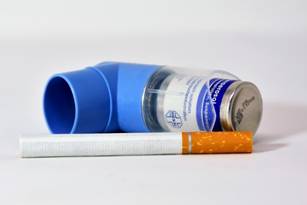Training on Proper Inhaler Use Key Predictor of Adherence in COPD
A study published in the International Journal of Chronic Obstructive Pulmonary Disease suggests that although age may be correlated to poor medication adherence among those with chronic obstructive pulmonary disease (COPD), there are additional areas that may predict poor adherence which healthcare providers should also address.
 Researchers surveyed over 760 patients from nine countries, including Brazil, Canada, France, Germany, Italy, Japan, the Netherlands, the United Kingdom and the United States. Individuals who participated in the survey had been diagnosed with “mild to very severe COPD and were between the ages of 40 and 75 years.” The survey was designed to collect data regarding inhaler use, adherence, dosing accuracy and training, as well as additional elements that impact adherence.
Researchers surveyed over 760 patients from nine countries, including Brazil, Canada, France, Germany, Italy, Japan, the Netherlands, the United Kingdom and the United States. Individuals who participated in the survey had been diagnosed with “mild to very severe COPD and were between the ages of 40 and 75 years.” The survey was designed to collect data regarding inhaler use, adherence, dosing accuracy and training, as well as additional elements that impact adherence.
“There is increasing evidence that suggests correct inhaler technique is fundamental for effective therapy and that inhaler device type and mastery play important roles in improving adherence, clinical outcomes, health-related quality of life, and use of health care resources in patients with asthma and/or COPD,” said the authors.
The survey revealed that nonadherence was higher in patients who were 65 years of age or younger when compared with older patients. However, despite this, there was no recorded “difference in adherence between genders, disease severity, or time since diagnosis.” Researchers also concluded that there was not a substantial change in patients’ “confidence of inhaling a full dose based on gender, age, disease severity, or time since diagnosis.”
In fact, patients whose healthcare providers offered them correct inhaler training were more confident that they received the correct dose. However, nearly 30 percent of those surveyed revealed that they “did not receive any training on inhaler use.”
It was also discovered that appropriate follow up regarding inhaler utilization was necessary to ensure patients were using their device correctly. Patients who had received a follow up from their clinician were documented to have achieved higher rates of adherence and felt more confident that they had taken the correct dose when using their inhaler than those who did not receive a follow up.
“The results presented are of significant importance as device attributes that lead to confidence of full dose received may improve treatment adherence by reducing the risk of overdosing or underdosing drug administration in patients,” said the authors.

